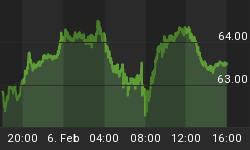Prior he worked for Raiffeisen Zentralbank (RZB) in the field of Fixed Income/Credit Investments and then later on joined Erste Group Bank, covering International Equities, especially Asia. In 2006 he began writing reports on gold and gained media attention when he expected the price of gold to rise to USD 2,300/ounce when the current price was only at USD 500. His six benchmark reports called "In GOLD we TRUST" drew international coverage on CNBC, Bloomberg, the Wall Street Journal, Economist and the Financial Times. He was awarded "2nd most accurate gold analyst" by Bloomberg in 2011. He also writes reports on crude oil. Mr. Stoeferle is managing two gold mining-baskets and one basket for silver mining-equities. He studied business administration and finance at the Vienna University of Economics and the University of Illinois at Urbana-Champaign. Mr. Stoeferle is also a Chartered Market Technician (CMT) and a Certified Financial Technician (CFTe).
Ronald-Peter Stoeferle is a noted Austrian economist and money manager who believes strongly that "we should expect that financial repression as well as wealth taxes in various facets which will increasingly gain in importance in coming years". He believes "this to be a disastrous strategy, as the redistribution will merely buy time, while the structural problems remain unsolved."

Financial Repression
"Financial repression always consists of a combination of different measures, which lead to a significant narrowing of the universe of investable assets for investors. Money which in a more liberal investment environment would have flowed into other asset classes, is channeled in a different direction. The goal of financial repression is an indirect reduction of government debt by means of the targeted manipulation of the cost of government debt, most of the time accompanied by steady inflation."
"Financial repression is ultimately a government imposed transfer of wealth."
Developed country governments because of their previous policy stances now have only two monetary options. Financial Repression is the course that has been chosen. This is because it is preferably to have "quiet debt reduction" achieved by:
- Direct or indirect capping of interest rates (especially on government bonds),
- Measures such as forcing domestic investors to invest in domestic capital markets, such as capital controls and regulations forcing institutional investors to hold portfolios with a "home bias",
- Taxes that make alternative investments more expensive (e.g. transaction taxes),
- Measures that imply a direct or indirect influence of government on financial institutions (macro-prudential regulation),
- Negative deposit interest rates, which increase the incentive for banks to invest in relatively risk-free assets. Banks are thus encouraged to monetize government debt - something that can rightly be called an inflation policy.

Video: 35 Minutes with Slides

Joins us at THE FINANCIAL REPRESSION AUTHORITY
THESIS PAPER: FINANCIAL REPRESSION:
For more detail signup for your FREE copy of the GordonTLong.com















